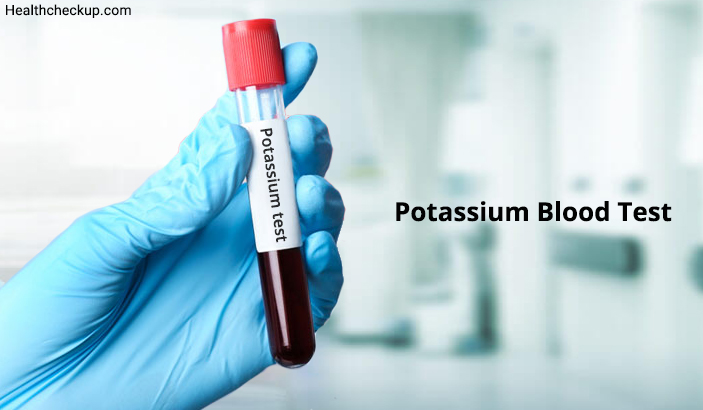Potassium is an important electrolyte of the body and as with other electrolytes, the optimum concentration of potassium is required for healthy physiological functions. High level of potassium in the blood is known as hyperkalemia while the low level is termed as hypokalemia. Potassium helps in the functioning of muscles and channelizes information between the nerves and muscles.
What Is A Potassium Blood Test?
The potassium blood test is used to measure the potassium level in the serum. Electrolytes help to control nerve and muscle function, maintain fluid level in the body and play a vital role in performing various physiological activities. Potassium is important for the functions of the heart and muscles.
What Is The Blood Test For Potassium Levels Called?
The blood test to determine the potassium and other mineral levels is called the Electrolyte Panel. Electrolyte panel test is performed for measuring the level of various electrolytes in the blood such as chloride, sodium, and potassium. Only a smaller amount of potassium is present in blood or serum and a larger amount is present inside the cells. The level of potassium is controlled mainly by aldosterone hormone secreted by the adrenal glands. A small variation in the potassium level may lead to serious symptoms.
Why Do I Need A Potassium Blood Test?
The patient needs a potassium blood test either as a part of their routine checkup or when they experience various symptoms which may be caused due to altered potassium levels.
Symptoms Of High Level Of Potassium In Your Blood
- Nausea
- Irregular heartbeat
- Paralysis in arms, hands, and legs
- Feel weakness in the body
- Fatigue
[Also Read: How To Avoid Nausea]
Symptoms Of Low Level Of Potassium In Your Blood
- Constipation
- Nausea
- Irregular heartbeat
- Fatigue
- Twitches
- Weakness
- Pain in muscles
[Also Read: Can Food Poisoning Cause Constipation?]
What Happens During A Potassium Blood Test?
Before a potassium blood test, your doctor may restrict some medications.
- In this test, your doctor will wrap a band around the upper arm
- The band in your arm creates pressure and your arms may swell
- Then the doctor will insert a needle in your vein and collect blood in a tube
- Remove the band from your arm
- Apply a bandage and cover the site of injection
- The blood sample is sent to the lab to measure the potassium level
What Is The Normal Potassium Range?
The normal range of potassium in your blood is between 3.5 to 5.0 millimoles per liter. If potassium level in blood is between 5.0 to 6.0 mmol/L it is called mild hyperkalemia. Level of potassium between 6.0 to 7.0 mmol/L results in moderate hyperkalemia and severe hyperkalemia develops above 7.0 mmol/L. Potassium level below 3.5 mmol/L is known as hyperkalemia.
Potassium Levels in Blood
| Serum Potassium Levels(mmol/L) | Condition |
| Less than 2.5 | Severe hypokalemia |
| 2.5 to 3.0 | Moderate Hypokalemia |
| Less than 3.5 | Hypokalemia |
| 3.5 to 5.0 | Normal |
| 5.0 to 6.0 | Mild Hypokalemia |
| 6.0 to 7.0 | Moderate Hypokalemia |
| More than 7.0 | Severe Hypokalemia |
What Is Low Potassium Level?
When potassium level is low then this condition is called hypokalemia. When the level of potassium in the blood is less than 3.5 mmol/L, the condition is known as hypokalemia. For initiation of treatment and the evaluation of medical urgency, the condition is further subdivided in to mild hypokalemia (with levels between 3.5 mmol/L to 3.0 mmol/L), moderate hypokalemia (with levels between 3.0 mmol/L to 2.5 mmol/L) and severe hypokalemia (with levels below 2.5 mmol/L). Potassium is a nutrient which is required for muscles and nerves functions. The potassium also has an important role in maintaining blood pressure. The kidney controls the level of potassium in the blood. The mild hypokalemia does not cause serious symptoms and if present they include tiredness, cramps, and constipation.
What Happens If Your Potassium Is Low?
Low blood potassium level may lead to the following symptoms
- Weakness
- Muscles spasms and cramps
- Muscles stiffness and aches
- Digestive problems
- Tingling and numbness
- Difficulties in breathing
- Mood changes
- Heart palpitations
What Happens If Your Potassium Is Too Low?
Severe hypokalemia is a condition characterized by the level of potassium below 2.5 mmol/L in blood. Severe hypokalemia significantly increases the risk of developing serious conditions such as acute respiratory failure, cardiac arrhythmias, and cardiovascular collapse. Immediate potassium supplement is given in such condition to reduce the risk.
What Is High Potassium Level?
A high level of potassium in the blood is known as hyperkalemia. The normal range of potassium level in the body is 3.2 mmol/L to 5.2 mmol/L. If the potassium level is increased above 6.0 mmol/L patient requires medical intervention. Kidney disease is one of the reasons for the high potassium level. The kidney controls the level of potassium in body fluids by controlling the amount of potassium to be excreted. When kidney functions disrupt, potassium is not efficiently excreted in urine and thus the level increases in blood. High potassium level may also be due to dehydration, injuries that cause severe bleeding and uncontrolled diabetes.
What Happens If Your Potassium Is High?
Symptoms experienced by the patients with high potassium level include
- Weakness
- Slow heart rate
- Abnormal rhythm
- Numbness and tingling sensation
- Chest pain
In rare cases, a moderately high level of potassium causes paralysis and heart failure.
What Happens If Your Potassium Is Too High?
The condition with a too high level of potassium in the blood is known as severe hyperkalemia. This condition is serious and requires immediate medical intervention. The patient may experience lethal arrhythmias. Delay in treatment may lead to cardiac arrest and death. Treatment aims to monitor the condition of the patient and immediate administration of drugs that works rapidly and synergistically.
Medically Reviewed By

Rohit Jain is an IPR Specialist and Medical Content Writing Expert. For over a decade, he has written several articles in the areas of female infertility, Erectile dysfunction, hemangioma, cervical cancer, monoclonal gammopathy of undetermined significance, mononucleosis, mitral valve disorder, nerve sheath tumor, shin splints, mild cognitive impairment, cellulitis, brain metastases, atelectasis, MCAD deficiency, lymphoma, sepsis, cardiac rehabilitation and metabolic disorder among others.








